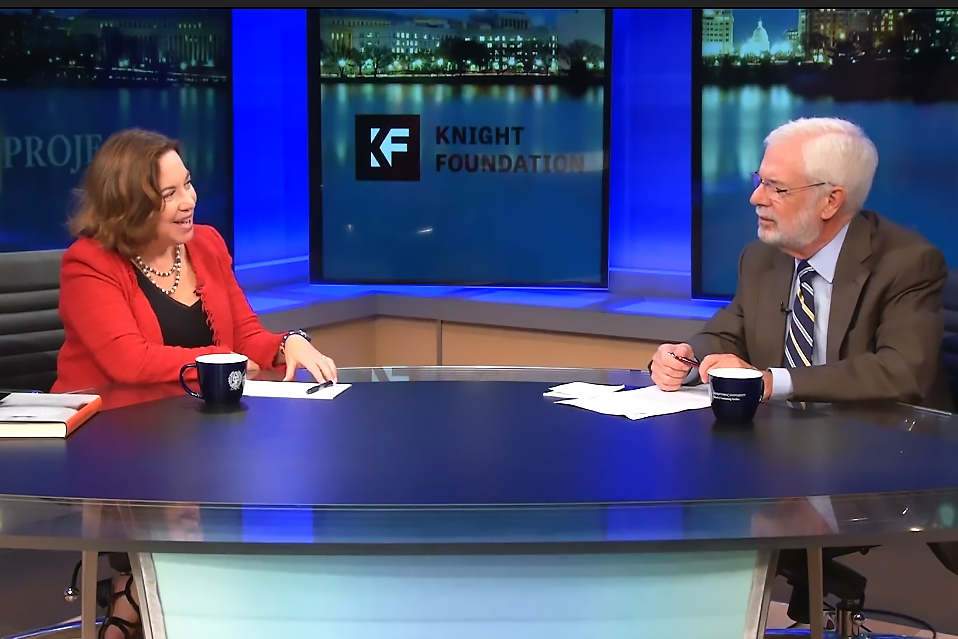Catherine J. Ross, Fred C. Stevenson Research Professor, was interviewed by Sanford J. Ungar, Director of the Free Speech Project at Georgetown University, about the First Amendment rights of elementary, middle and high school students, and a wide range of related issues. The video will be part of the Free Speech Project's online archive.
Mr. Ungar asked Professor Ross about the unique background she brought to bear when writing her 2015 book Lessons in Censorship: How Schools and Courts Subvert Students' First Amendment Rights (Harvard University Press). She described how her work as a historian and policy analyst and on the faculty of the Yale Child Study Center before she attended law school sensitized her as a First Amendment scholar to the importance of children's right to express themselves. Not many First Amendment scholars discuss the free speech rights of children but Professor Ross saw, in Mr. Ungar's words, that children's rights go beyond a right to be protected and provided for—to include "sophisticated rights" like those to which adults are entitled.
Professor Ross explained that the right to free speech only applies between the individual and the government and that children have expressive rights in school, which is their primary contact with the government. "Students have a right to say what they want so long as they do not disrupt the ongoing work of the school, which is education," she said. "The Supreme Court held that more than 40 years ago." However, Professor Ross clarified that there are some exceptions. For instance, students are not allowed to advocate that people use illegal substances, unless they are addressing political change like legalization of marijuana. And schools can largely control what students say in venues like the school newspaper where the speech might be attributed to the school.
And yet, Professor Ross has demonstrated that authorities in schools across the country regularly silence student speech they do not like that is protected by the Constitution. School officials regularly silence speech that someone might find offensive. Common examples involve the messages on clothing, specifically t-shirts, students decide to wear. For instance, t-shirts bearing pro-Trump, pro-Hillary, and pro-LGBT rights—and positions on both sides of every high conflict issue—have been censored in schools, which according to Professor Ross, "is an absolute violation of the clearest rights." Throughout, Professor Ross and Mr. Ungar discuss a range of other examples of school censorship that violates students' constitutional rights, as well as issues involving censorship of religious speech by individual students, bullying, sexting and other issues in the news. She says censorship teaches students at a young age that their voices are not being heard and that free speech is a "mere platitude" rather than teaching that we mean what we say about rights.
Ultimately, this shapes the way young people understand their rights (and the rights of others), which Professor Ross related to a major contemporary issue: freedom of expression on college campuses. How, she asked, do you expect college students to understand the norms of free speech and the legal meaning of the First Amendment if they don't learn about the law and the norms in grades K-12?
As children get older, they will be exposed to disturbing speech, but there is a way for them to respond. Professor Ross enforced that as students mature, it is important for them to "reply with more and better speech, bring analytical reasoning to bear, and challenge other people's arguments," she said. "They cannot know that because they did not grow up experiencing it."
Finally, Professor Ross explains the importance of her work to the health of democracy itself.


